I’m the kind of person that likes to idly scroll my facebook newsfeed or instagram feed when I’m bored. This way. I can see what my friends are up to and how life is treating them. Most of my friends are avid posters of selfies. I get to see what my friends look like without actually being with them in real life. I wanted to explore this concept further in MAX for allowing me to see more selfies (even of people I do not know” tagged with “selfie” or “wefie” on Flickr to see how many of these are posted on the Flickr Stream. Thank you August Black and Randall Packer for creating a MAX Patch that a software n00b like me can easily digest 😛
PROCESS:
This video is based on August’s original Flickr Search that has been e-mailed to us. I had I then followed the instructions for audio and visual manipulation.
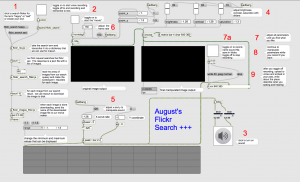
(The original unedited MAX Patch)
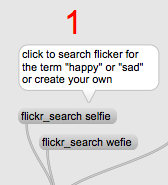
Firstly, I entered the two search queries which is “selfie” and “wefie”.
The “movie” was moving at a speed to fast for me to screenshot so I adjusted it to 250 from 150: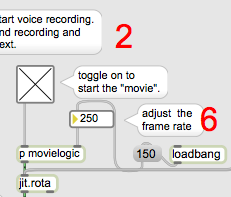
Changing the presets would make it look like filters; the ones you would get on instagram.

I also renamed it to Ruzana’s Flickr Search before turning on the audio.
Click the above video to see my MAX working file
Click the above video to see the final video
My concept for this video is inspired by selfies/wefies on instagram. In instagram, you’re able to choose from a vast array of image filters to pimp your selfie. I adjusted various parameters on the max file to create a gradual change of filter and recorded it. The video starts of slow, representing the beginning of selfie culture and then gradually becomes faster and the filters so extreme that you can’t even see the faces in the images anymore. The accompanied sound also stops and sounds “glitched” at some point and then becomes really really fast – This is to represent how something as innocent as taking a picture of yourself and uploading it onto social media websites online may erupt and evolve into something bigger; an issue of self-objectification.
I find the idea of appropriating real-time images by searching for them on the internet very interesting. Prior to this, I had no idea you could generate audio based on visual information and transpose our data from one media type to another. I’ve learnt a lot from this exercise though it proved to be rather challenging at first 🙂 I’m happy I pulled through!

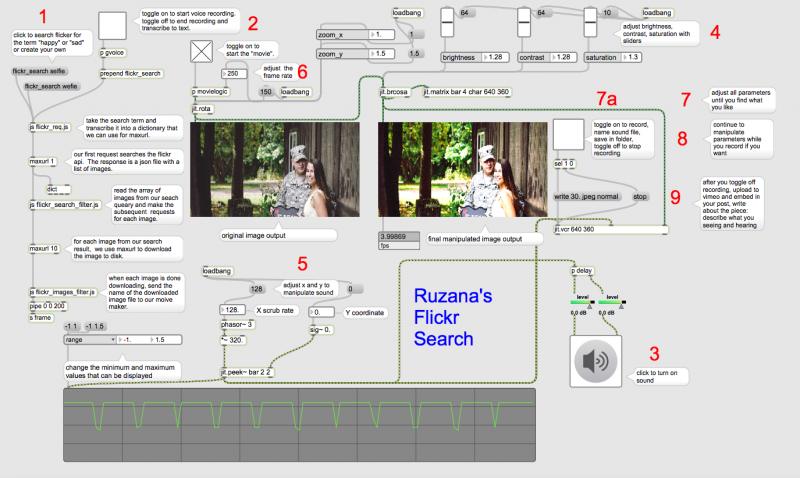
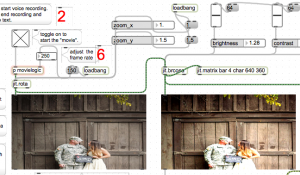

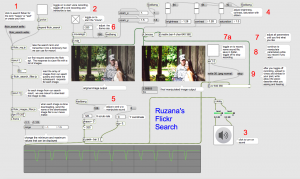
Excellent! I think the speeding up of information is indicative of the acceleration of our overall media experience. We take in so much information that perhaps our perceptual capabilities can no longer take it all in, that we have cross the threshold of our “bandwidth.”